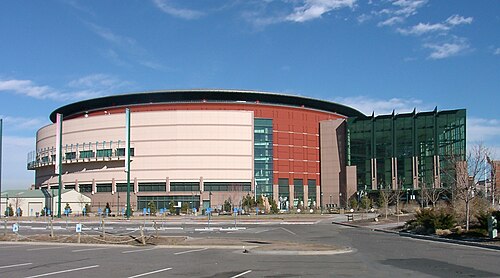Make no mistake about it; I am a church-attending, Bible-reading, rosary-praying, Jesus-following Catholic. Yet I was deeply upset when I read the Jan. 30 editorials by Clarion editors Jessica Slosberg and Zach Blom, collectively entitled “Why Date within Your Faith, or Not?” For those of you who don’t know, both columns were written in response to the lecture given by Doron Kornbluth to DU students on Jan. 24, at which Mr. Kornbluth argued, according to the Clarion editors, that “people should marry people of their same faith because it will be better for the marriage…[and] for the children.”
Like Mr. Blom, I adamantly disagree with this “formulaic and obtuse” conclusion, espoused so steadfastly by Mr. Kornbluth and Ms. Slosberg. However, unlike Mr. Blom, whose primary concerns are romance, flowers, poetry, and the freedom of love from the threat of religious pragmatism, my opposition to Ms. Slosberg is, actually, religious.
Growing up in a devout Catholic home, my parents shaped my religious ideology by taking me to mass every week, making sure I completed our rituals of passage, and even sending me to a Catholic school. Now in my early twenties, according to Ms. Slosberg, I should be experiencing “a lull in spirituality.” However, this is not the case. Nor do I think it the case for many of our generation.
Just take a look around DU and you can easily prove her wrong. Religious student groups such as Campus Crusade, FOCUS, Hillel and Chabad all enjoy healthy membership and heavy student involvement. In short, Mr. Kornbluth’s statistics on young adult spirituality are outdated and do not reflect our own, very religious, generation. Then, of course, one should take into consideration Mr. Kornbluth’s highly cynical and altogether demeaning view that “the problem is that we are making decisions in the wrong time of our lives,” as if to label us tragically na’ve for thinking ourselves adult enough to make choices which affect our futures.
Yet in actuality, like many of us at DU, my faith commitments have remained constant over the years, and my understanding of Catholic spirituality has only grown since coming to college. I am in my final year as a Religious Studies major, and I spent all last year abroad at a Catholic school, studying Catholic theology.
Perhaps surprisingly then, I am dating a Jew, not a Catholic, as Ms. Slosberg has suggested I should. However, I am also not dating her for love, as Mr. Blom has argued I should, simply because it is the romantic thing to do. No, my friends, instead I am dating her for love, because if my study of theology has taught me anything it is that God wants us to love. In other words, dating for love is the realization of a religious duty, while sacrificing love for the sake of religion not only undermines the nature of love, but also misunderstands and misrepresents the true meaning and nature of religion. Let me explain:
Whether Jew or Christian or Muslim, we believe that God is love, that all of creation is evidence of that love, and that the free response of a true devotee is one of love, reverence, and service both to God and to the rest of creation, which is made known to us so that we may love more readily. Therefore, life is not a calling to have a Christmas tree or a Chanukah menorah, to say the rosary or keep kosher, but instead to choose love when God blesses your life with it, and the truly religious life is spent in loving affirmation of this choice.
Therefore, I am dating a woman of my same faith commitments, a woman who believes in God and compassion and prayer; most importantly, a woman who, if we do get married, is committed to instilling in our children a sense of character, morality, and social responsibility-the true foundation of any deep relationship with God, which is exactly what Jesus, Moses and Muhammad wanted all people to have.
In this way, my children will honor my Catholic parents and, although they will be raised Jewish, will carry forward my core Catholic beliefs, until they are old enough to have religious faith and love be that which they choose for themselves.
It is not my religious duty to raise Catholic children. It is my religious duty, as a Catholic (insert Jew, Protestant, Muslim, Buddhist, or Hindu), to raise good people-children of principle, children of character, children brought up in a home of compassion by parents who love God and each other.
Joey Lechuga
Senior religious studies major











